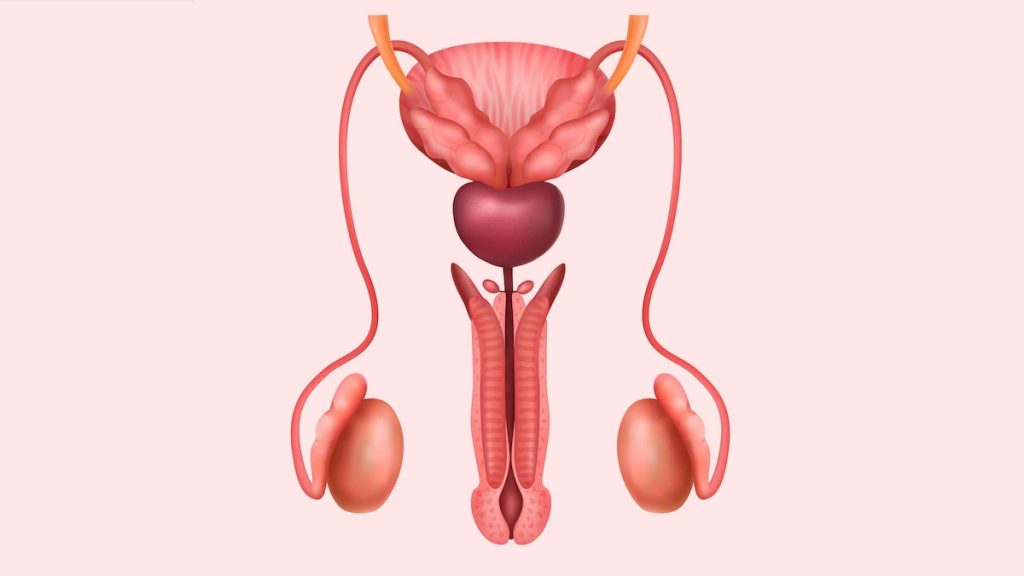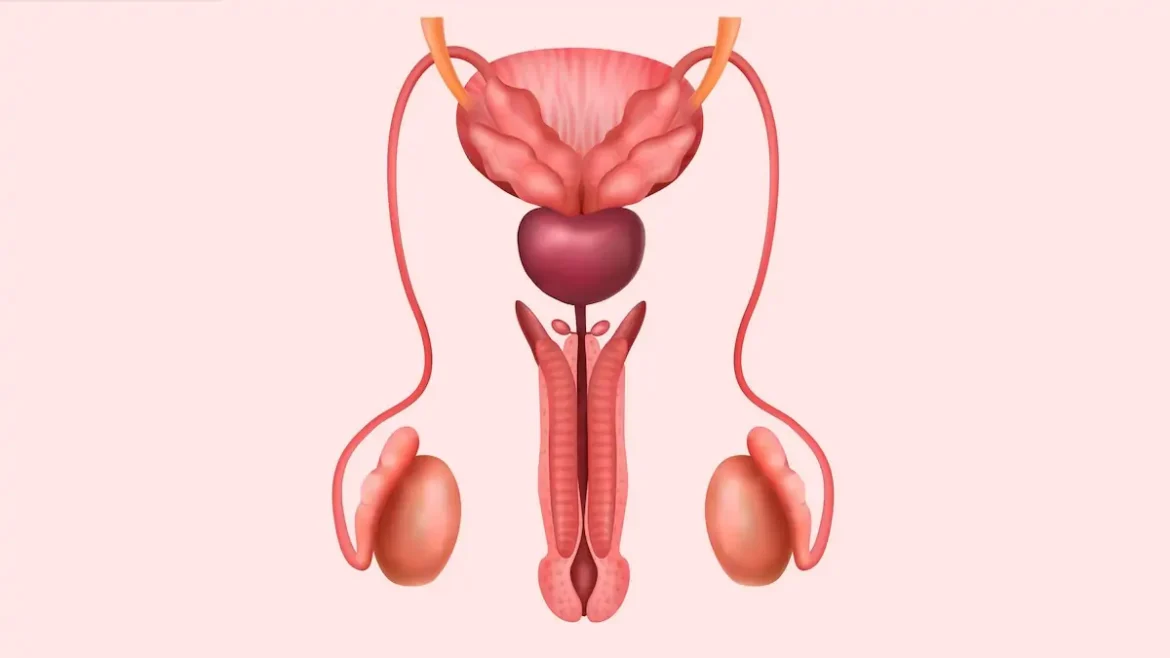Table of Contents
Welcome! Today, we tackle a topic that’s often whispered about but rarely discussed openly – “blue balls.” Yes, you read it right. We’re diving deep into it is, debunking myths, and most, exploring how understanding this can significantly improve your relationship. So, let’s get started on this journey from discomfort to deeper connection, shall we?

Understanding the Basics: What “Blue Balls” Really Means
You’ve probably heard the term thrown around, but what does “blue balls” actually mean? In simple terms, it refers to testicular pain that occurs due to prolonged sexual arousal without ejaculation. Think of it as a traffic jam where everything’s moving smoothly until suddenly, it’s not.
The Importance of Open Communication in Relationships
Communication is the cornerstone of any healthy relationship. When it comes to uncomfortable topics like blue balls, talking openly can remove taboos and strengthen your bond.
Setting the Stage: Why This Matters for Both Partners
Understanding each other’s bodies and discomforts is pivotal. It’s not just a man’s issue; it affects the relationship dynamic and requires empathy and understanding from both partners.
The Biology Behind Discomfort
To truly empathize, it’s crucial to understand the biology. Blood engorges the vessels in a male’s genitals during arousal and without release, can cause pain or discomfort. It’s nature’s way of saying, “Hey, we’re full down here!”
Anatomy 101: How “Blue Balls” Occurs
The scientific term for “blue balls” is epididymal hypertension. It’s like a pressure build-up that demands release, one way or the other. Understanding this can demystify the discomfort and lead to a more empathetic view.
Debunking Myths vs. Scientific Facts
Let’s set the record straight: “Blue balls” won’t cause permanent damage or result in serious health issues. It’s uncomfortable, yes, but not harmful in the long run.
The Physical Impact: Symptoms and Relief
Symptoms include a heavy, aching feeling, but relief is often found through ejaculation or simply waiting it out. Yes, it does pass.
Emotional and Relational Consequences
Beyond physical discomfort, there can be feelings of frustration or embarrassment. It’s essential not to trivialize these emotions as they play a significant role in one’s well-being.
The Man’s Perspective: More Than Just Physical Pain
For many men, the discomfort isn’t just physical. It can bring up feelings of inadequacy or vulnerability, especially if they feel misunderstood.
The Partner’s View: Empathy, Misunderstandings, and Support
For the other partner, it requires balancing empathy with boundaries. Misunderstandings can arise, but with open discussion, support becomes easier to provide.
Strengthening the Relationship Through Vulnerability
Vulnerability is powerful. Discussing blue balls can help partners see each other in a more human, vulnerable light, which is incredibly bonding.
Communication: The Path to Understanding and Relief
Opening up about discomforts can be tough, but it’s also a pathway to deeper understanding and intimacy.
Starting the Conversation: Tips for Opening Up
- Be honest and direct.
- Choose a comfortable setting.
- Use “I feel” statements to express your feelings.
Navigating Together: Strategies for Couples
- Listen actively without judgment.
- Educate yourselves together.
- Find creative solutions that work for both of you.
Joint Problem-Solving
This isn’t a one-person issue. It’s something you can tackle together, finding strategies that relieve discomfort while respecting each other’s boundaries.
Setting Boundaries and Expectations
It’s okay to set boundaries. In fact, it’s necessary. Communicating your needs and limits openly can prevent resentment from building up.
Mutual Support and Care
Caring for each other’s well-being creates a deeper sense of companionship and love. It’s about being there, through the uncomfortable and the comfortable.
Celebrating Small Victories: Recognizing Emotional Growth
Every step towards understanding and empathy is a victory. Celebrate these moments as they contribute to the foundation of your relationship.
Beyond the Blues: Building a Stronger Connection
Understanding and navigating issues like blue balls can actually strengthen your relationship, paving the way for enhanced intimacy and trust.
Education: The Foundation of Empathy
Learning together about each other’s bodies fosters an environment of empathy and care. Knowledge truly is power.
Intimacy: Deepening Your Connection Beyond Physical
Intimacy is not just physical. Emotional and intellectual intimacy is deepened through navigating challenges together.
Trust and Patience: The Building Blocks of a Lasting Relationship
Trust grows when you face challenges together. Patience, on the other hand, allows you to give each other space to grow and understand.
Moving Forward Together
As you navigate through these challenges, remember, it’s about moving forward together, hand in hand, stronger and more connected.
When to Seek Professional Help: Recognizing the Signs
If issues persist and you find it difficult to communicate or find relief, seeking professional help from a therapist or counselor can be a valuable step.
Fostering a Supportive Environment: Practical Tips for Couples
Creating a safe space for each other is crucial. Regular check-ins, constant reassurance, and understanding can make all the difference.
Embracing Growth: How Overcoming Challenges Strengthens Bonds
Every challenge you overcome together strengthens your bond. It’s about growing, learning, and thriving together.
Conclusion
Recapping our journey, we’ve explored the nuances of “blue balls,” debunked myths, and highlighted the importance of empathy, communication, and understanding in strengthening your relationship.
The bigger picture here is how addressing discomfort together enhances the overall quality of your relationship across all aspects. May your journey from pain to gain be filled with mutual support, deeper understanding, and, most importantly, love.
FAQs
What is “blue balls” and is it a medical condition?
“Blue balls” is the colloquial term for the discomfort experienced due to prolonged sexual arousal without ejaculation. It’s not considered a serious medical condition.
How can I talk to my partner about discomfort without causing embarrassment or discomfort?
Start with honesty and choose a comfortable setting. Use “I feel” statements to communicate your emotions and physiological experience.
Are there long-term health impacts associated with “blue balls”?
No, there are no known long-term health impacts. The discomfort is temporary and can be relieved through ejaculation or simply waiting it out.
Is it possible for people of all genders to experience a similar type of discomfort?
While the term “blue balls” specifically refers to a male physiological phenomenon, people of all genders can experience discomfort due to unfulfilled sexual arousal.
How can understanding and addressing this issue improve our relationship?
By fostering empathy, communication, and support, couples can navigate discomfort together, strengthening their bond and enhancing their overall relationship.
Read more health related articles here
